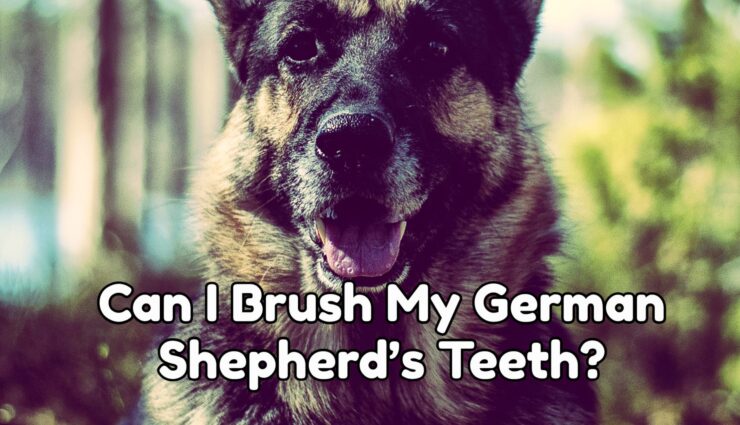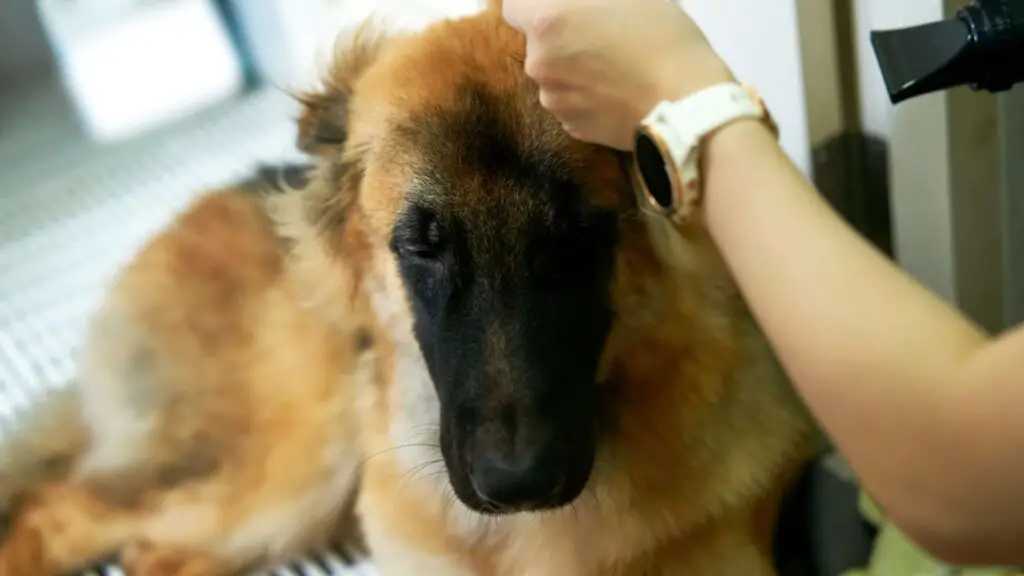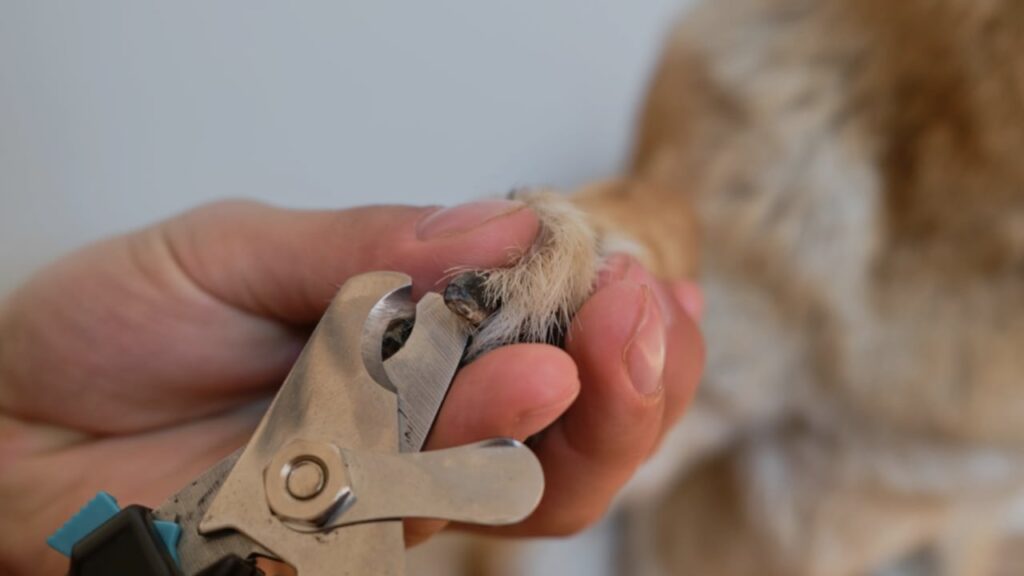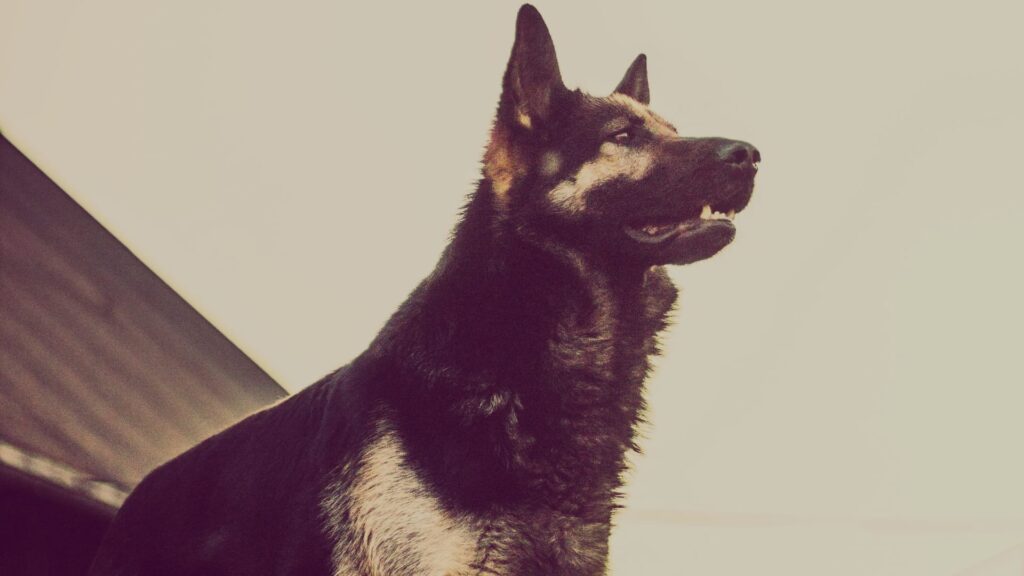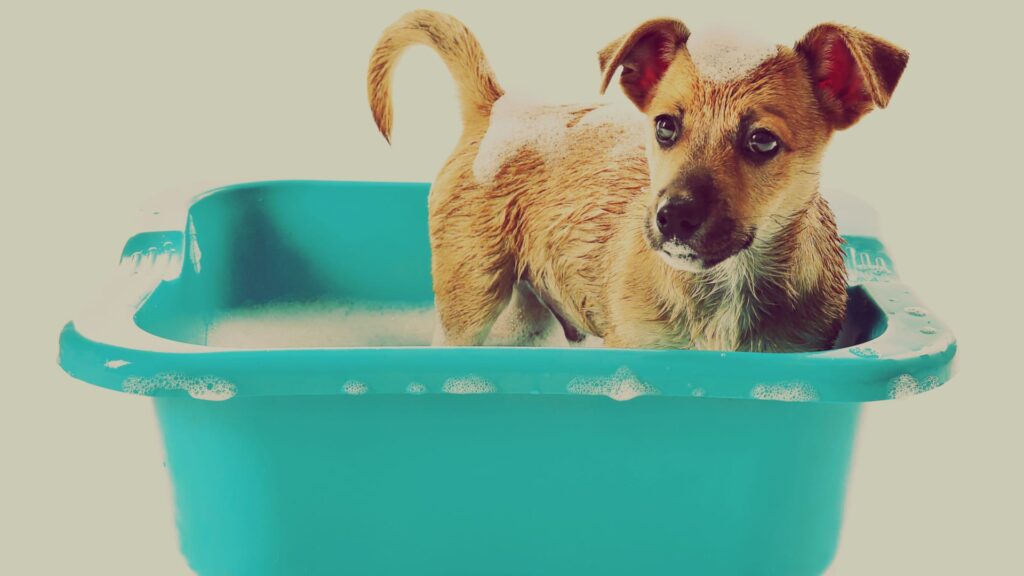Yes, you can brush your German Shepherds teeth! Home dental care is necessary because it is one of the best ways to keep your dog’s teeth and gums healthy.
Many owners do not realize how important it is to take care of their German Shepherd’s teeth, this is fundamental to avoid illnesses and it is a necessity that increases as a dog ages.
The ideal way to ensure proper dental health for your dog is to start when it is a puppy or since it started living with you, as part of its new routines.
How to Brush Your German Shepherd’s Teeth?
- Use a soft-bristled, moistened dog toothbrush. If you don’t have a special pet toothbrush, you can use a regular one.
- The toothpaste must be suitable for the dog. The best option is the pet toothpaste, which can come with a special flavor for dogs.
- Don’t use the same toothpaste you use, baking soda or salt. While they are safe for you, these cleaning agents can be harmful to your dog if ingested, so ask your vet or a pet store about specific products for dogs.
- Pay special attention to the back teeth of the upper jaw, the upper back molars and the canines as these teeth are more likely to accumulate tartar.
- Give your dog a small sample of the toothpaste, so it knows the taste.
- Brush with gentle movements to clean the teeth and gums, as you would in your own brushing.
- Brush your dog’s teeth once or twice a week, but if your dog develops a periodontal disease, you will have to brush its teeth daily.
- Reward your dog with games, petting, or your favorite activity to positively reinforce the brushing process.
How to Take Care Of My German Shepherd’s Teeth?
Dry foods.
There are specific feeds to prevent periodontal diseases. They are designed for adult dogs and help fight halitosis and dental plaque.
The texture of dry dog food not only helps remove tartar and plaque, but also helps strengthen the jaw bones.
Chewy bones.
Chewy bones are very good for gums and jaw exercise, just as they do not replace a toothbrush. The femur bones are also very helpful, it is a great natural tooth cleaner, and it is also nutritious.
Vigorous chewing will clear away excess food particles and plaque, can help relieve jaw tension and strengthen jaw muscles.
Dental toys for dogs.
Dental toys for dogs are also a good option for cleaning their teeth, especially if they are combined with a toothpaste specifically for them.
Your German Shepherd will use it as a teether, cleaning its teeth while it is entertained. Just like bones, toys help strengthen its jaw, clean its mouth, avoiding the appearance of diseases, and unlike bones, it helps them have fresh breath.
Dental snacks.
Dental snacks are good for removing food debris between the teeth, but they are not as effective as brushing. Use these snacks from time to time as a complementary “treat” and not as a substitute.
Rawhide for dental care.
Let your German shepherd chew some rawhide. Rawhide is a great way to get your dog to “brush” its teeth.
Chewing rawhide will also help your dog clean out excess food particles and plaque, relieve jaw tension and strengthen those muscles.
Most Common Periodontal Diseases in Dogs.
Tartar: As your dog eats, drinks and bites what it finds in its path, it introduces new bacteria and microorganisms, which will form the bacterial plaque.
The plaque is deposited on the gums and between the teeth, where it gradually changes until it becomes the annoying tartar. There the tartar begins to infect the root of the tooth, causing inflation, pain, injury and undermining of the tooth.
Gingivitis: If the tartar is not treated, the first consequence is to suffer from gingivitis. The symptoms are bad breath, swollen and bleeding gums and pain. Gingivitis is usually treated with a thorough mouth cleaning and antibiotics and anti-inflammatories are usually added.
Periodontitis: Periodontal disease is usually found in more advanced stages. In this case, the infection affects the tooth and its insertion causes pain, inflammation and bleeding gums. It usually causes the irreparable loss of the affected teeth.
To prevent these illnesses and for your dog to have excellent oral health, you only have to create a habit as simple as regular tooth brushing.
A regular check-up is essential to take care of your dog’s mouth. And remember to consult your vet if you have any doubts about your German Shepherd’s buccal health.

